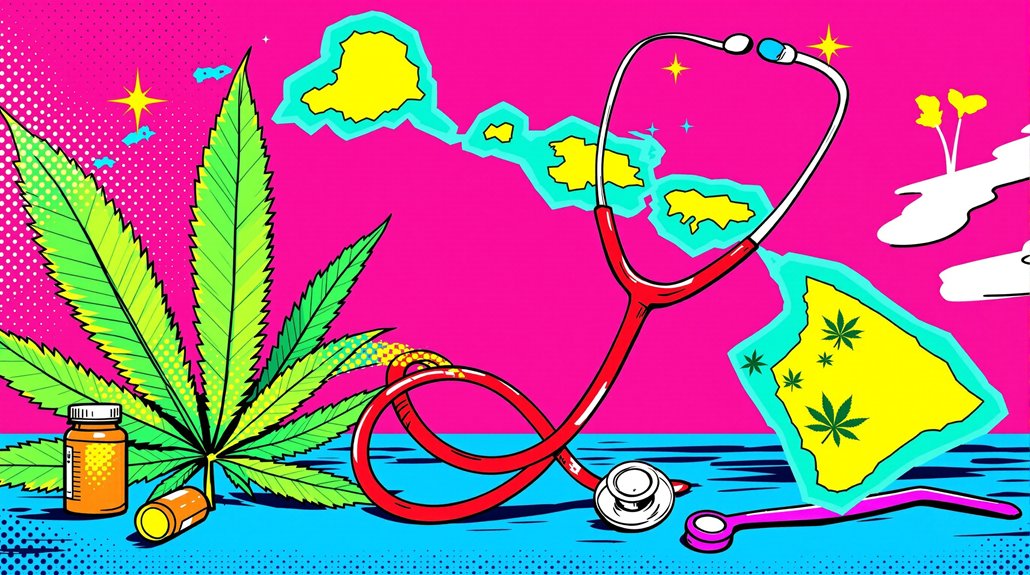The UK’s medical cannabis landscape faces a prescriber knowledge gap that two industry leaders are determined to close. Curaleaf and MCCS have launched extensive education programs targeting healthcare professionals who find themselves traversing unfamiliar cannabinoid territory. Traditional medical training rarely covers cannabis therapeutics, leaving doctors hesitant to prescribe what patients increasingly request. These specialized courses promise to transform cautious practitioners into confident prescribers. But can classroom education truly overcome decades of pharmaceutical convention?
As medical cannabis prescribing gains legitimacy across the UK healthcare system, the demand for specialized prescriber education has surged beyond what traditional medical training can provide. Curaleaf and the Medical Cannabis Clinicians Society (MCCS) are stepping into this educational void with extensive programs that challenge conventional medical education approaches. Their expert-led initiatives represent a fundamental shift from standard pharmaceutical training toward nuanced cannabinoid therapeutics education.
The regulatory landscape demands sophisticated understanding that extends far beyond basic pharmacology. UK prescribers must navigate NICE guidelines while maintaining compliance with Care Quality Commission standards and rigorous patient safety requirements. This creates a complex educational challenge that traditional medical schools haven’t addressed thoroughly. Professional certification has become increasingly standardized, with programs requiring minimum assessment standards of 75% on comprehensive exams. The stakes are particularly high given that prescriber authorization requires demonstrated competency in both regulatory restrictions and clinical applications.
Prescriber authorization demands demonstrated competency in complex regulatory restrictions alongside sophisticated clinical applications beyond traditional pharmaceutical training.
International models provide instructive examples of structured approaches to cannabis prescriber certification. Australia’s Special Access Scheme-B mandates proof of completed cannabis therapeutics training for prescriber status. This framework demonstrates how regulatory bodies can establish clear educational prerequisites without compromising clinical flexibility. UK-specific platforms like Drug Science’s MEDIC complement these international standards by providing updates on evolving regulatory policy for healthcare professionals.
The curriculum structure reflects sophisticated pedagogical design that accommodates varying expertise levels. Professional Certificates target foundational knowledge, while Advanced Certificates and Diplomas address complex clinical applications. Modules systematically cover therapeutic indications, pharmacology, dosing protocols, side effects, monitoring procedures, and contraindications. This extensive approach guarantees practitioners develop competency across the full spectrum of cannabis prescribing responsibilities.
Clinical evidence forms the educational backbone, with content targeting conditions demonstrating robust therapeutic support. Pain management, neurological disorders, psychiatric conditions, and palliative care represent primary focus areas. Emerging applications include autoimmune disorders, IBS, autism, migraine, and women’s health conditions. The UK Medical Cannabis Registry contributes real-world evidence that supplements theoretical training with practical patient outcomes data.
Pharmacological education emphasizes practical differentiation between THC and CBD mechanisms, side effect profiles, and ideal dosing strategies. Product modules detail available cannabis-based medicines, administration routes, and bioavailability considerations. Safe prescribing protocols address contraindications including pregnancy and driving restrictions while establishing patient risk assessment frameworks. Interactive scenarios teach practitioners to select between oils, flower preparations, capsules, and alternative formulations based on patient-specific factors.
The continuing professional development component guarantees ongoing competency maintenance as evidence bases evolve. Expert clinicians and academic leaders in pharmacology, neurology, and cannabinoid medicine guide educational programming. CPD-certified courses undergo independent evaluation to guarantee compliance with UK professional development standards and medical integrity requirements. Leading programs offer eight online modules per level to provide comprehensive coverage of clinical applications and regulatory requirements. The Sapphire Institute has pioneered free educational access specifically for UK healthcare professionals to ensure widespread knowledge dissemination.
This educational evolution represents more than curriculum expansion—it signals healthcare’s adaptation to patient demand for evidence-based cannabis therapeutics. Traditional pharmaceutical education models prove inadequate for cannabis prescribing complexities, necessitating specialized training approaches. The collaboration between Curaleaf and MCCS demonstrates how industry partnerships can address educational gaps while maintaining clinical rigor and regulatory compliance standards.








